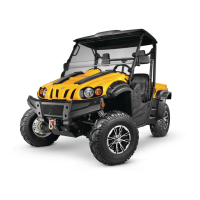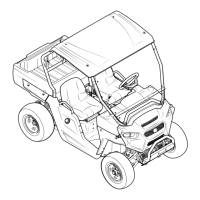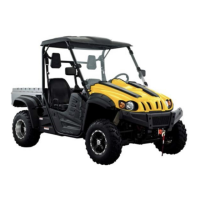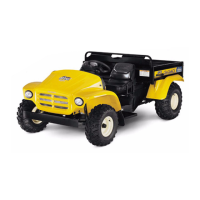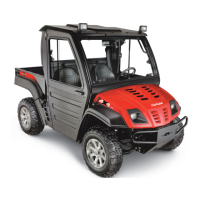Troubleshooting
Pre-ignition
Pre-ignition is the premature burning of fuel and is caused by hot spots in the
combustion chamber. Glowing deposits in the combustion chamber, inadequate Cooling
or an overheated spark plug can all cause pre-ignition. This is first noticed as a power
loss but eventually causes damage to the internal parts of the engine because of the
high combustion chamber temperature.
Detonation
Detonation is the violent explosion of fuel in the combustion chamber before the proper
time of ignition. Using low octane gasoline is a common cause of detonation.
Even when using a high octane gasoline, detonation can still occur. Other causes are
over-advanced ignition timing, lean air/fuel mixture at or near full throttle, inadequate
engine cooling, or the excessive accumulation of carbon deposits in the combustion
chamber. Continued detonation can result in engine damage.
Engine Noises
Unusual noises are often the first indication of a developing problem. Investigate any
new noises as soon as possible. Something that may be a minor problem, if corrected,
could prevent the possibility of more extensive damage.
Use a mechanic’s stethoscope to isolate the location. Determining the exact cause of a
noise can be difficult. If this is the case, consult with a professional mechanic to
determine the cause. Do not disassemble major components until all other possibilities
have been eliminated.
Consider the following when troubleshooting engine noises:
•
Knocking or pinging during acceleration can be caused by using a lower octane
fuel than recommended. This may also be caused by poor fuel. Pinging can also
be caused by an incorrect spark plug heat range or carbon buildup in the
combustion chamber.
•
Slapping or rattling noises at low speed or during acceleration—May be caused
by excessive piston-to-cylinder wall clearance (piston slap).
Note:
Piston slap is easier to detect when the engine is cold and before the piston has
expanded. Once the engine has warmed up, piston expansion reduces piston-to-
cylinder clearance.
•
Knocking or rapping while decelerating - usually caused by excessive
rod bearing clearance.
•
Persistent knocking and vibration occurring every crankshaft rotation—usually
caused by worn rod or main bearing(s). This can also be caused by broken
piston rings or a damaged piston pin.
•
Rapid on-off squeal—Compression leak around cylinder head gasket or spark
plug(s).

